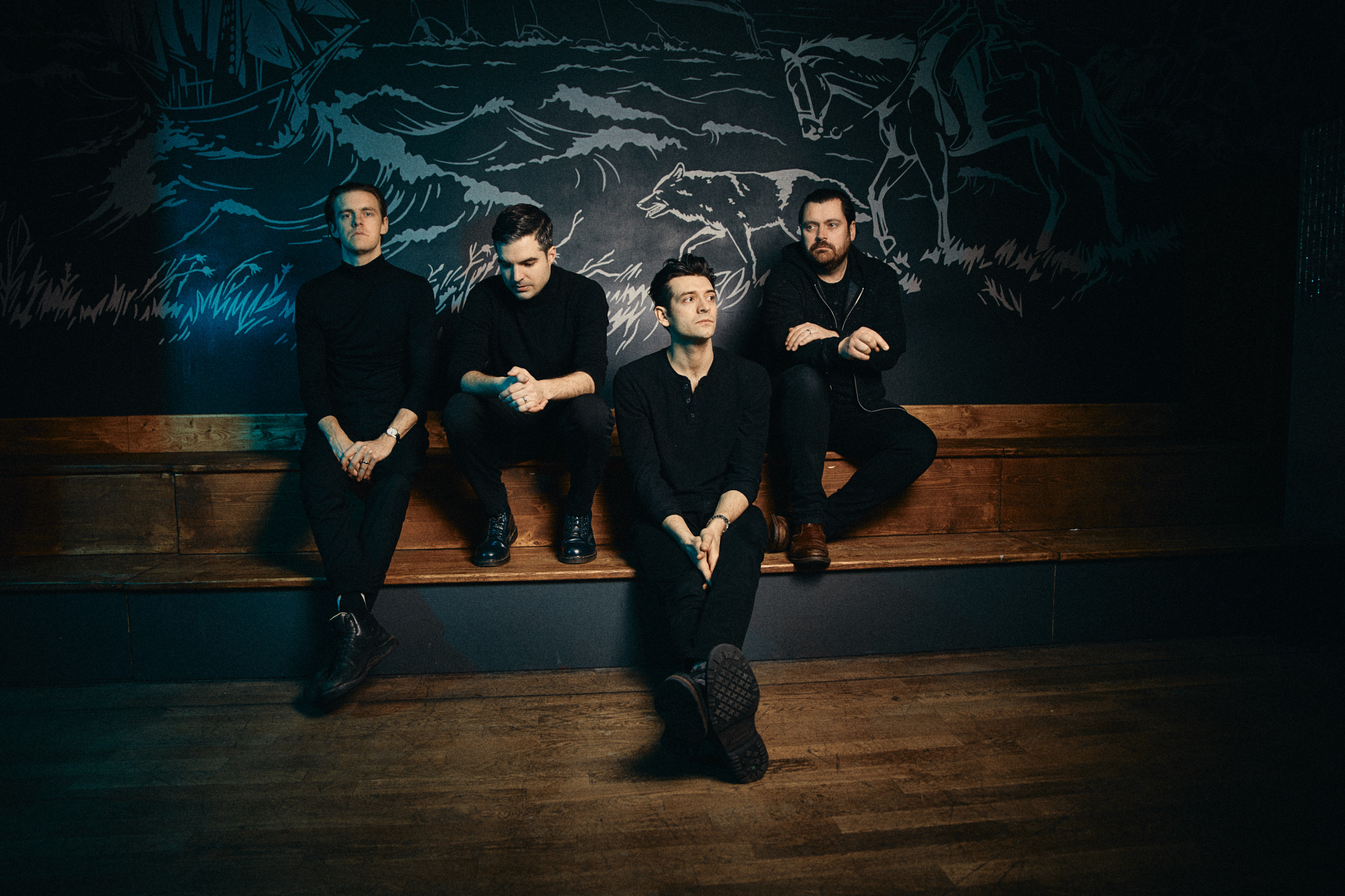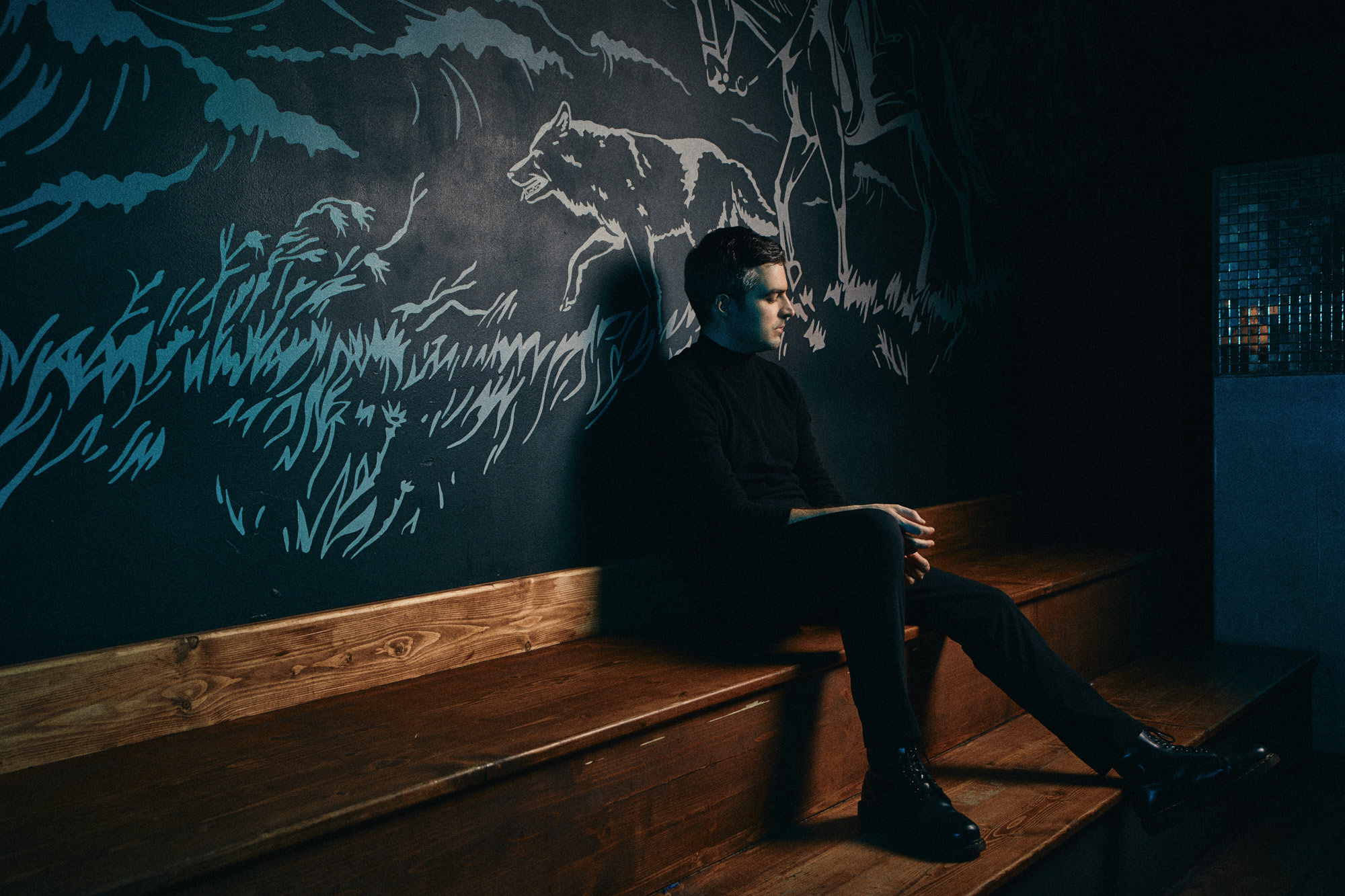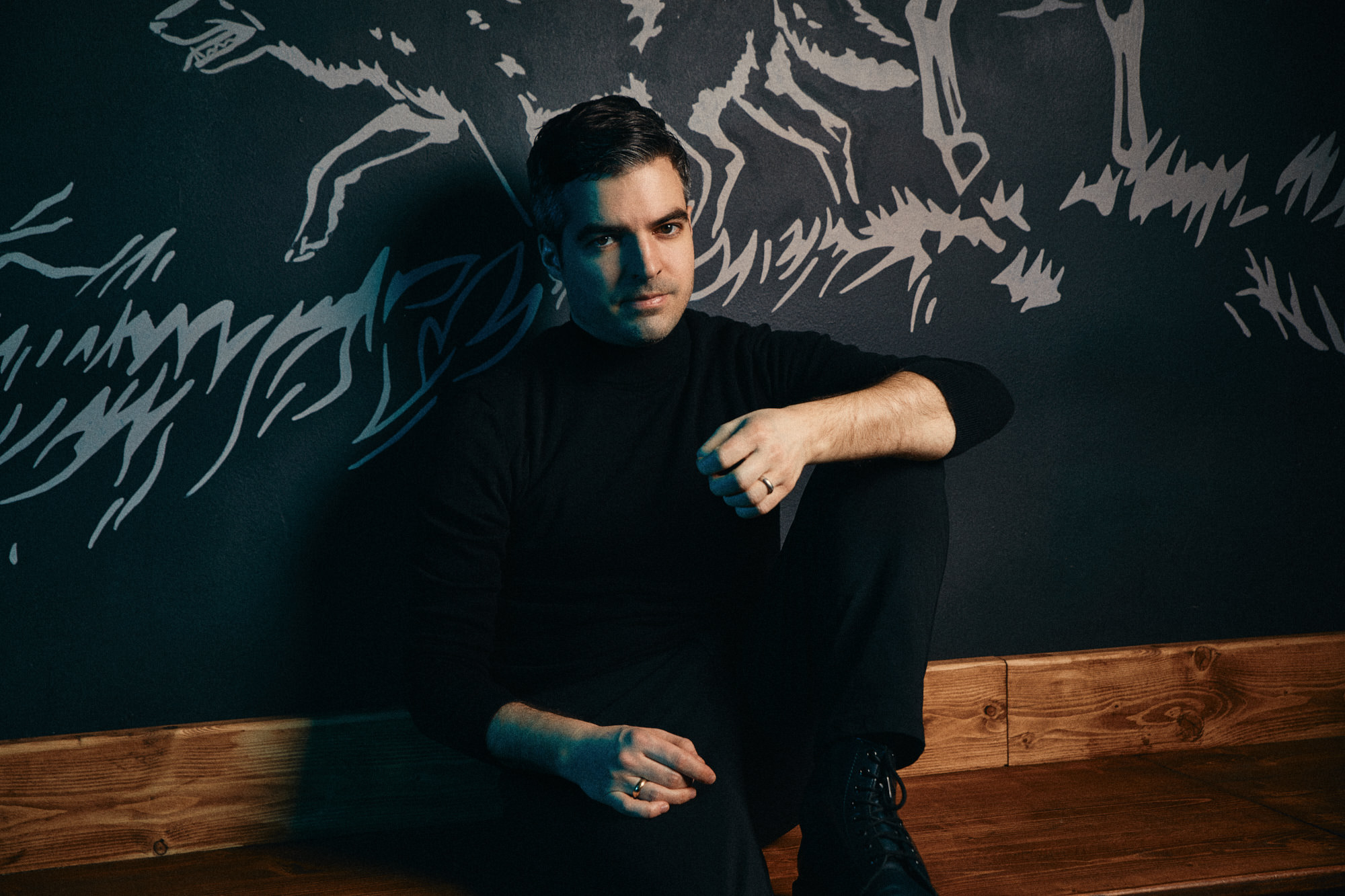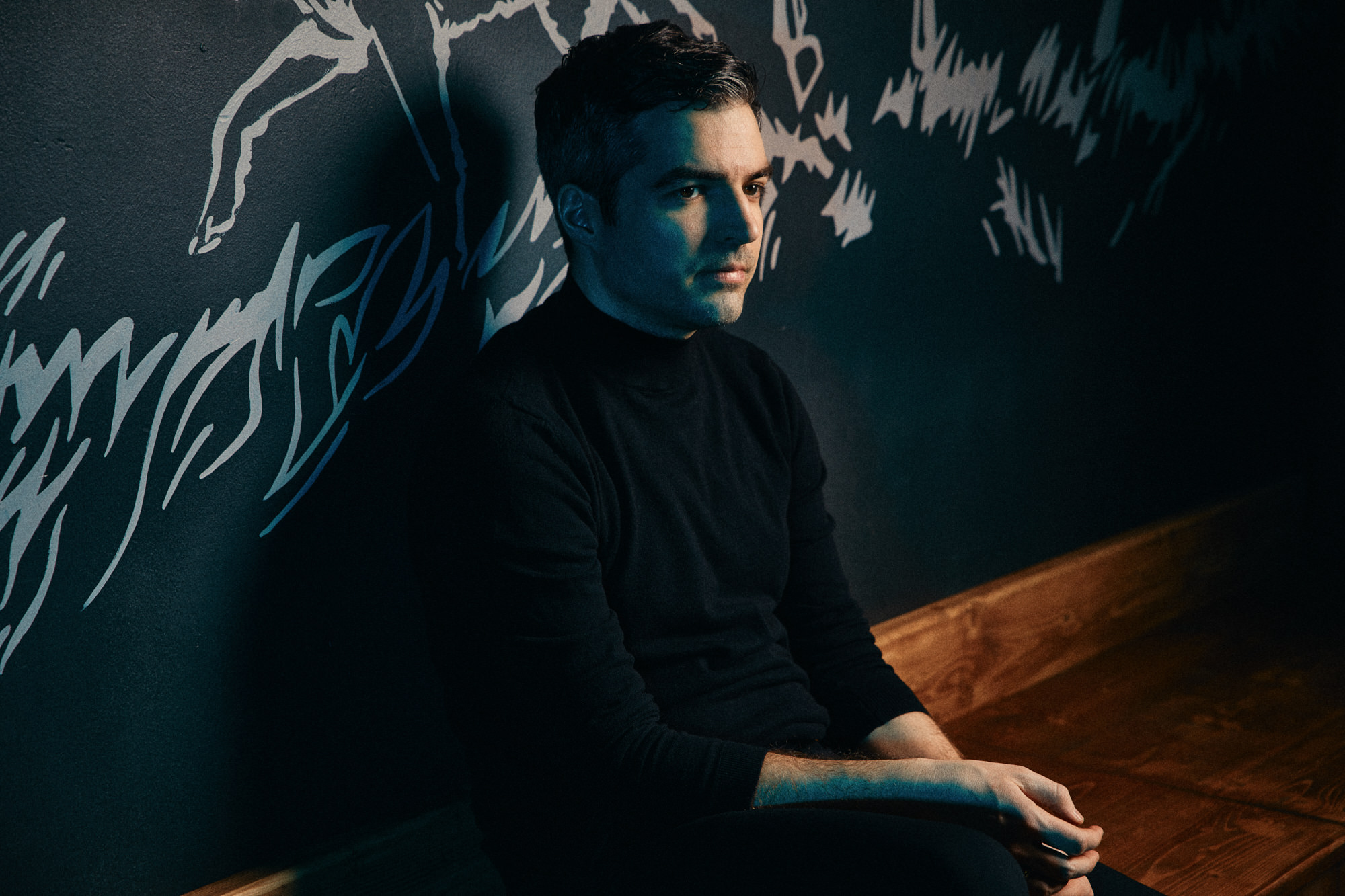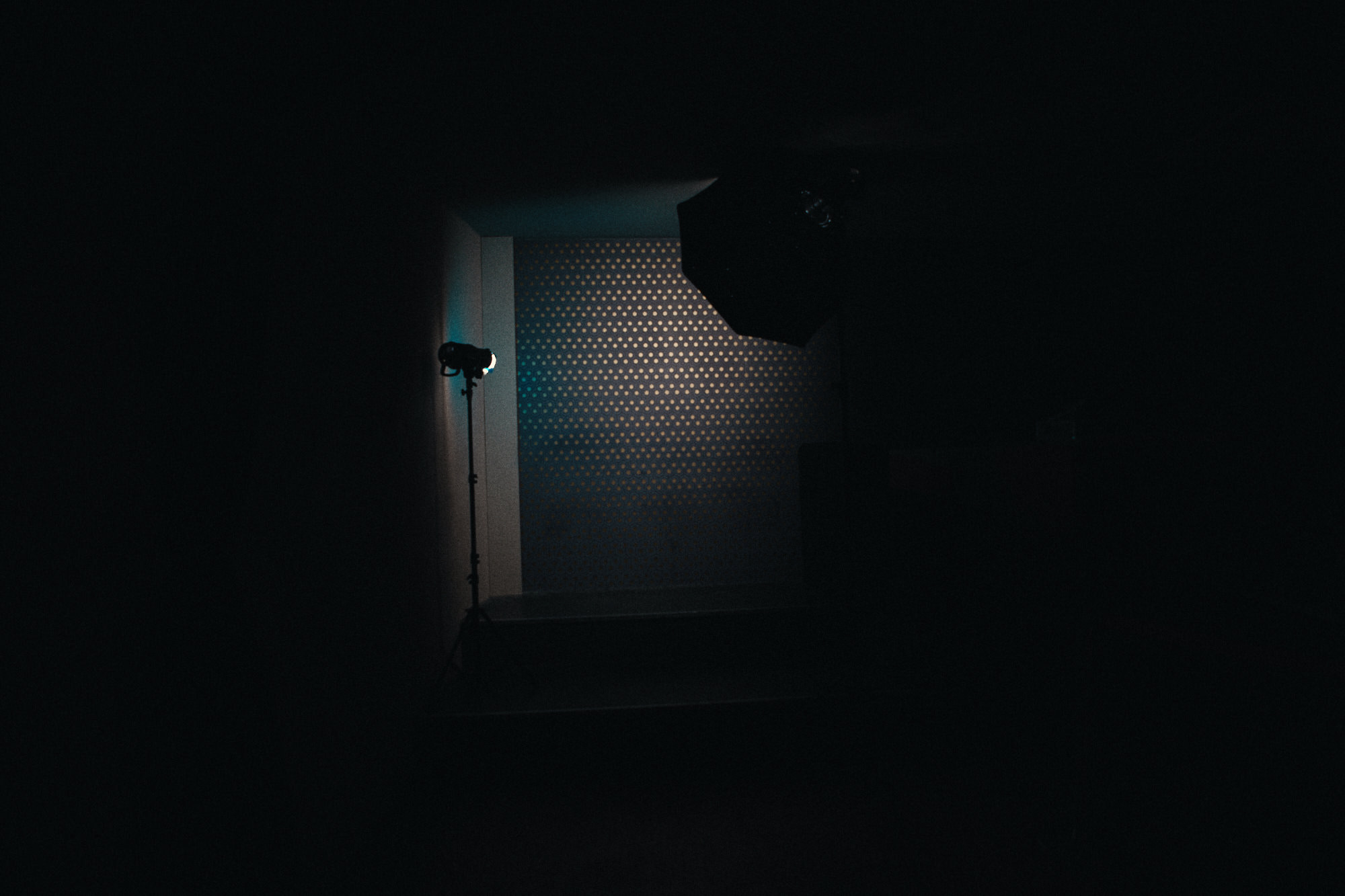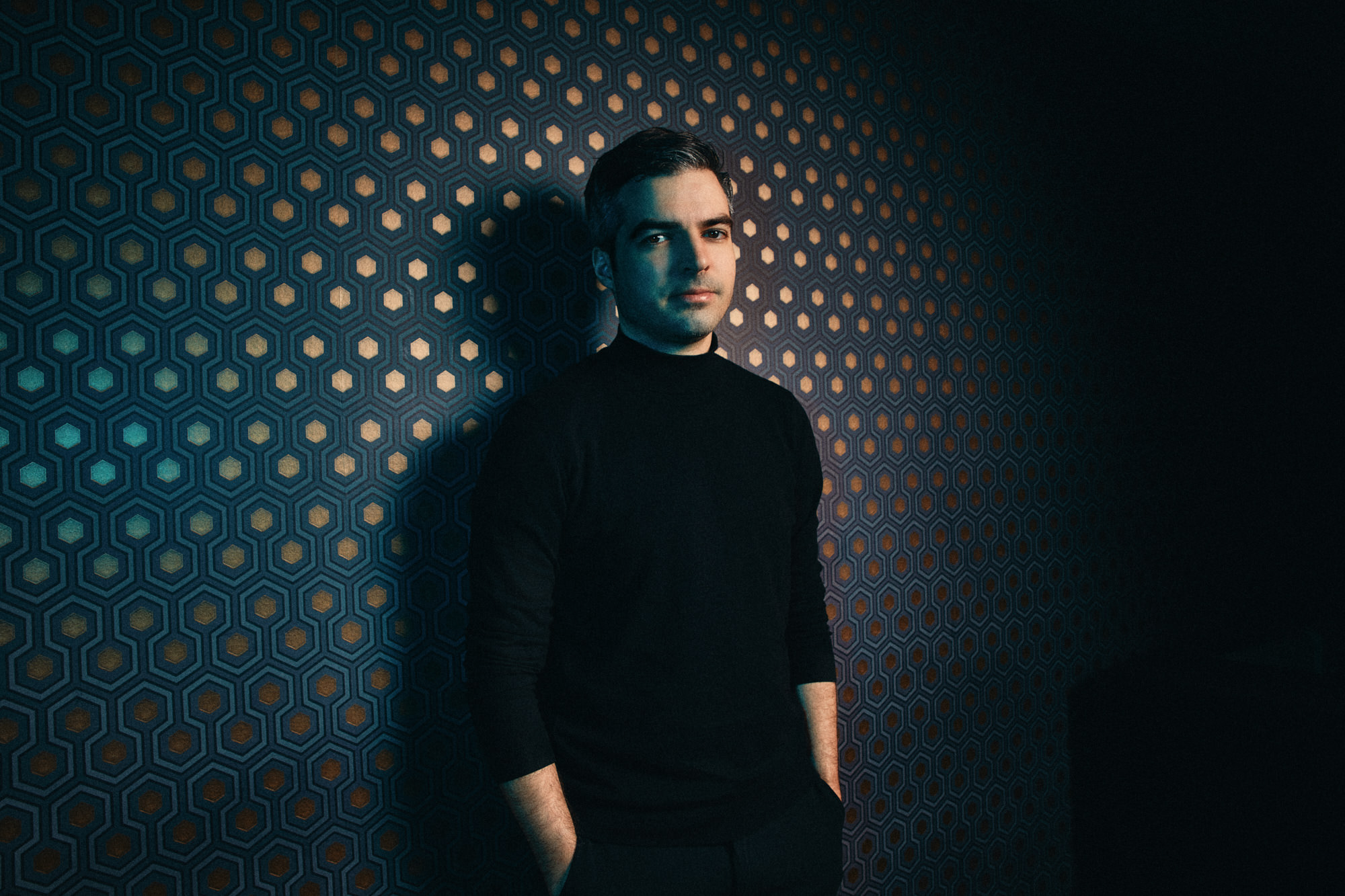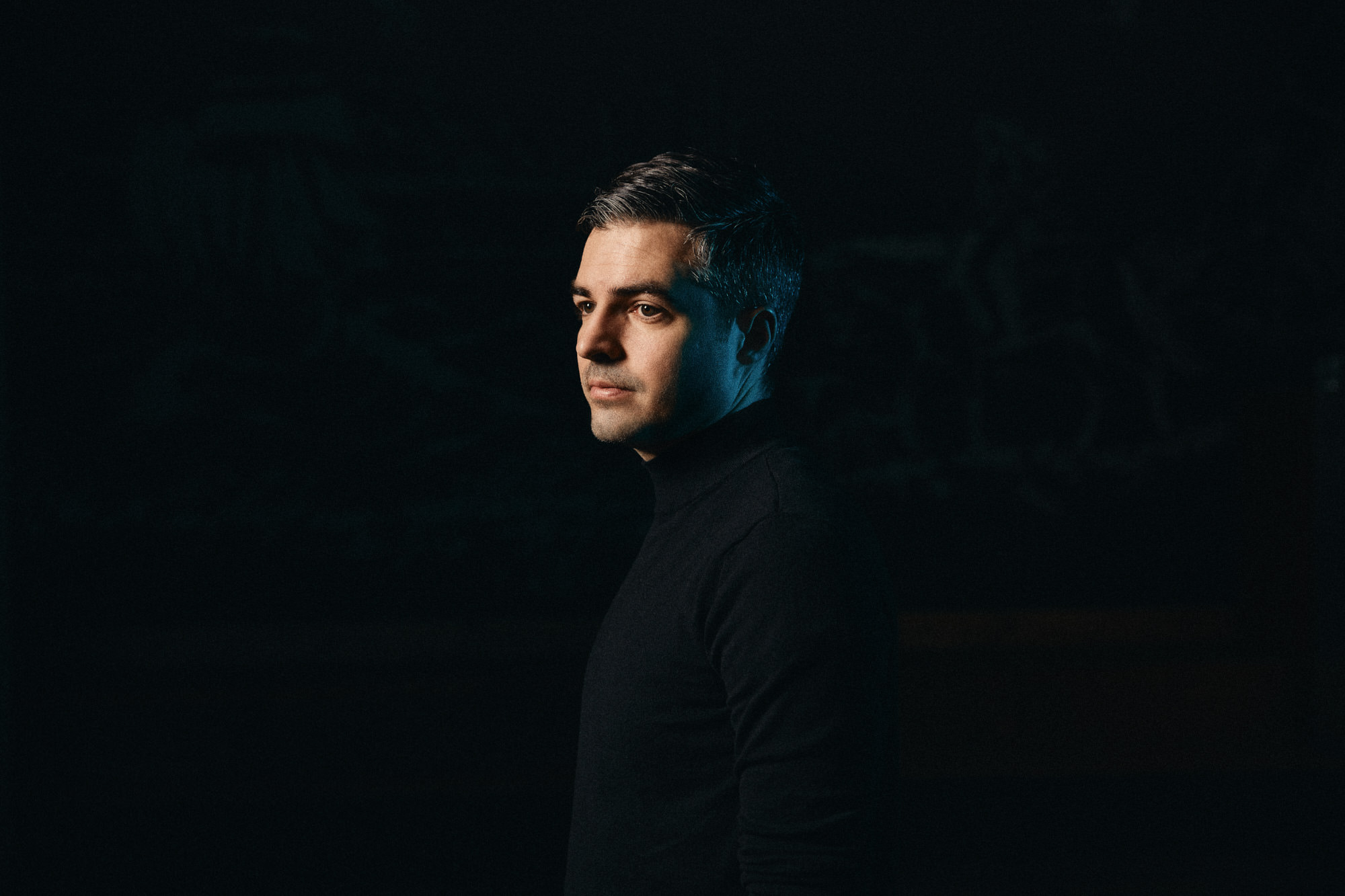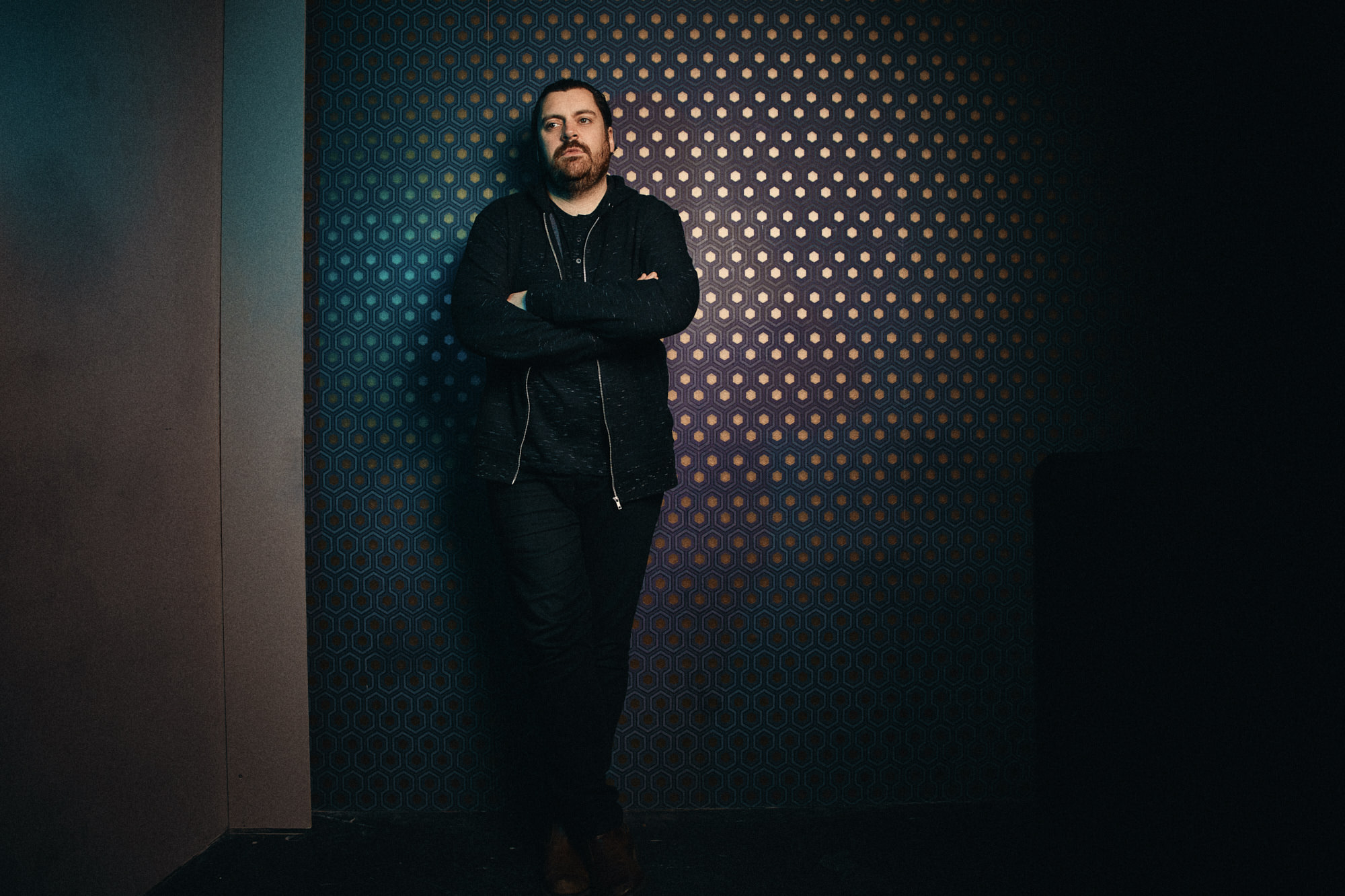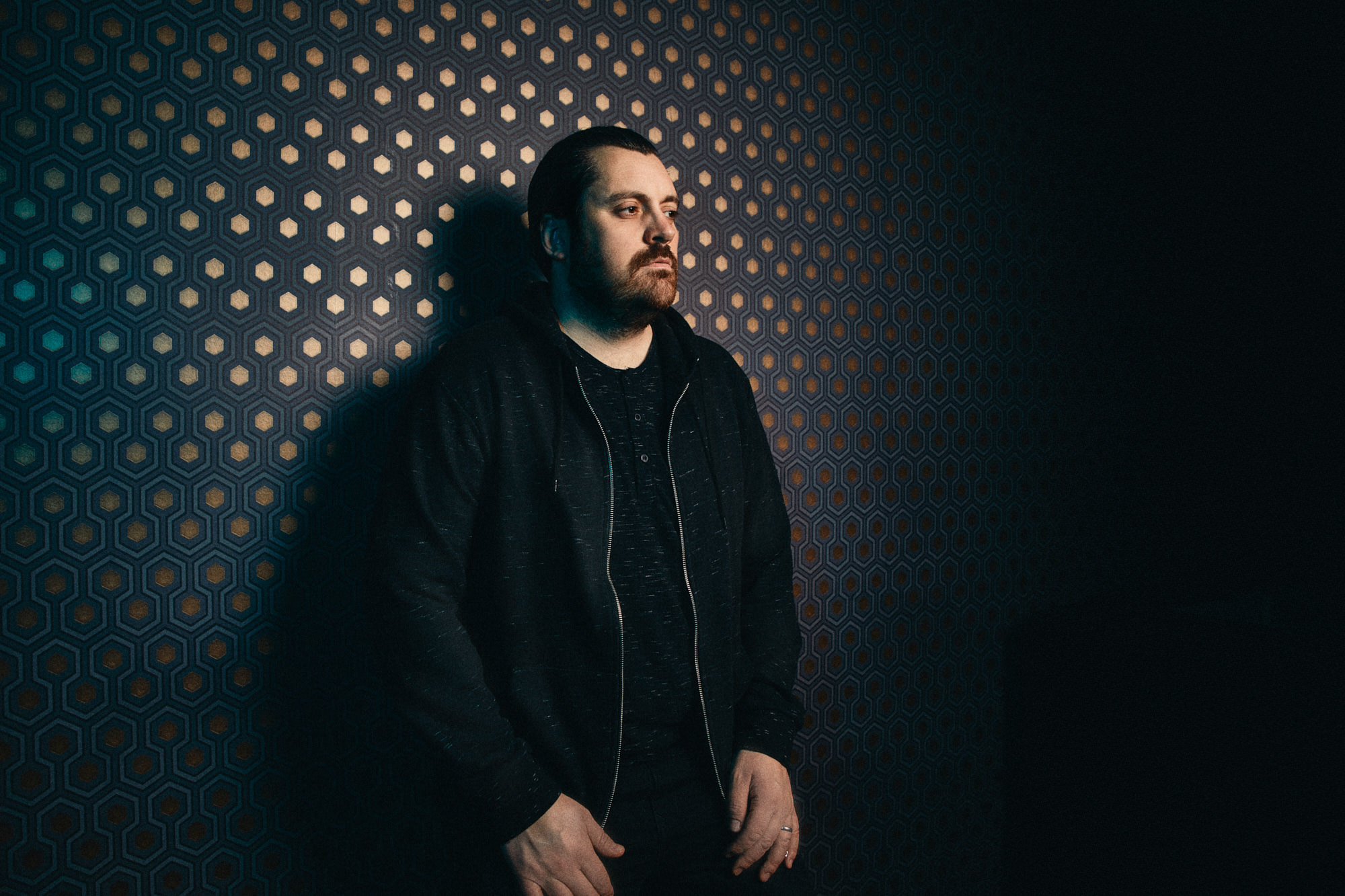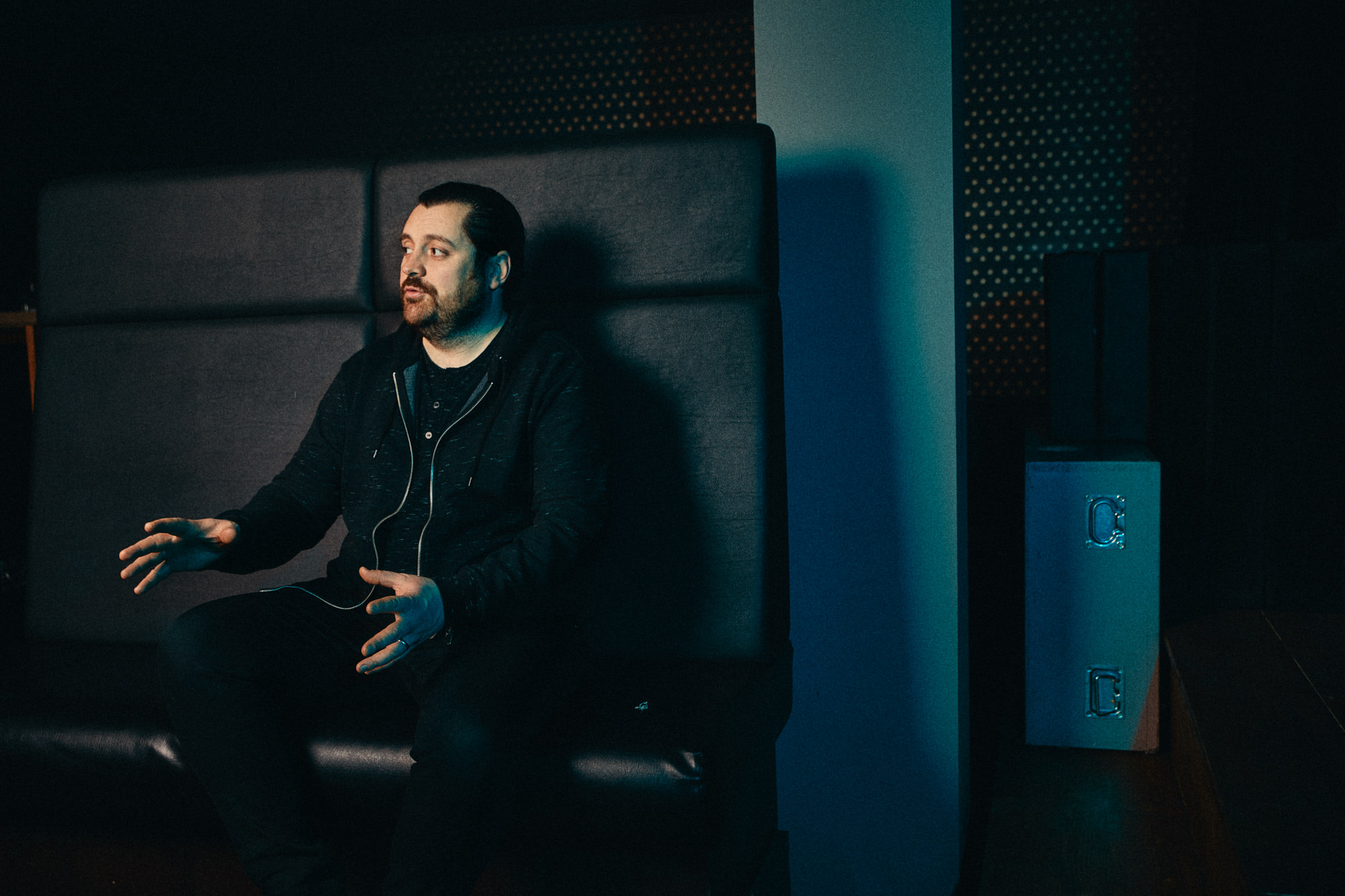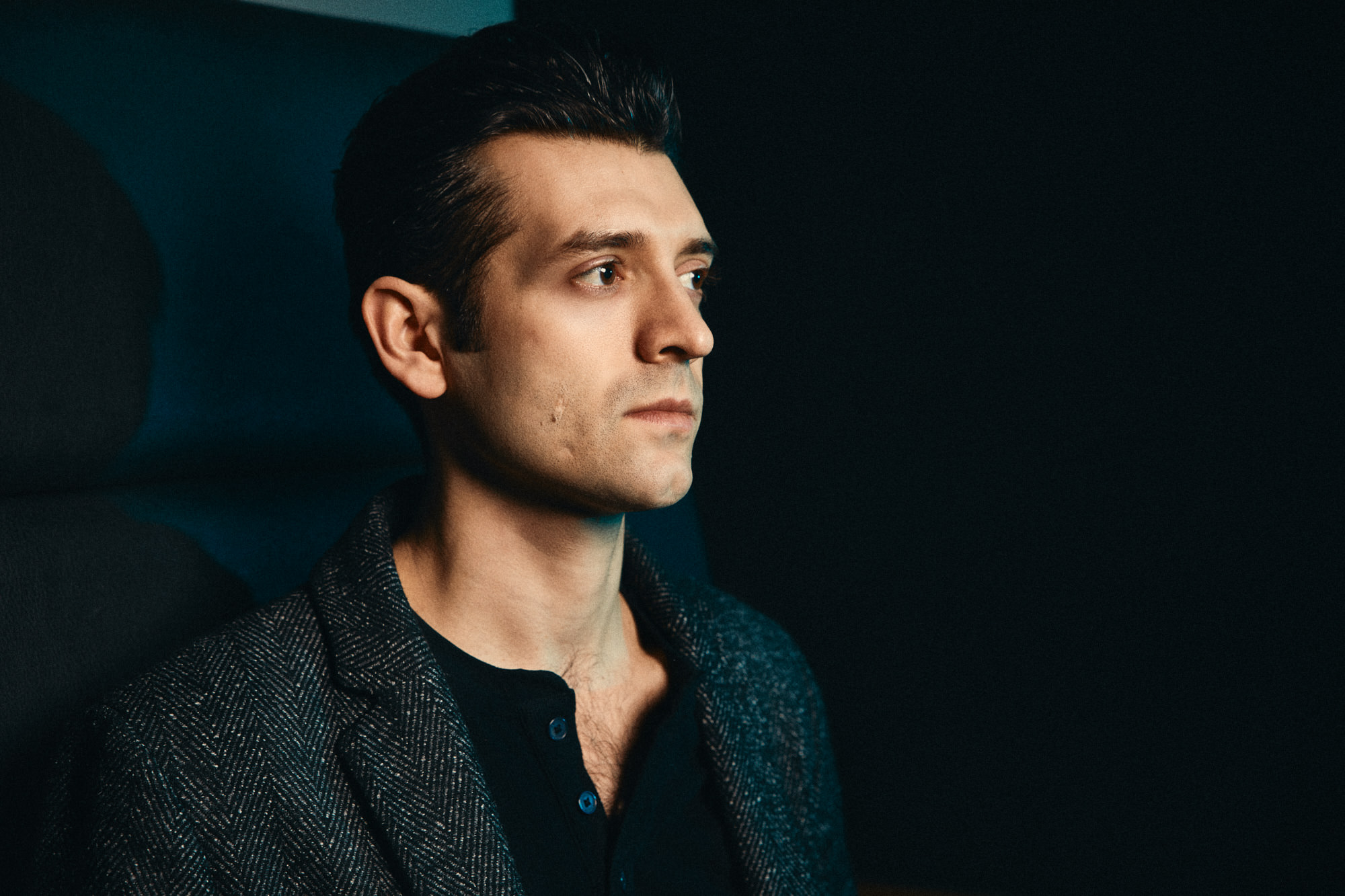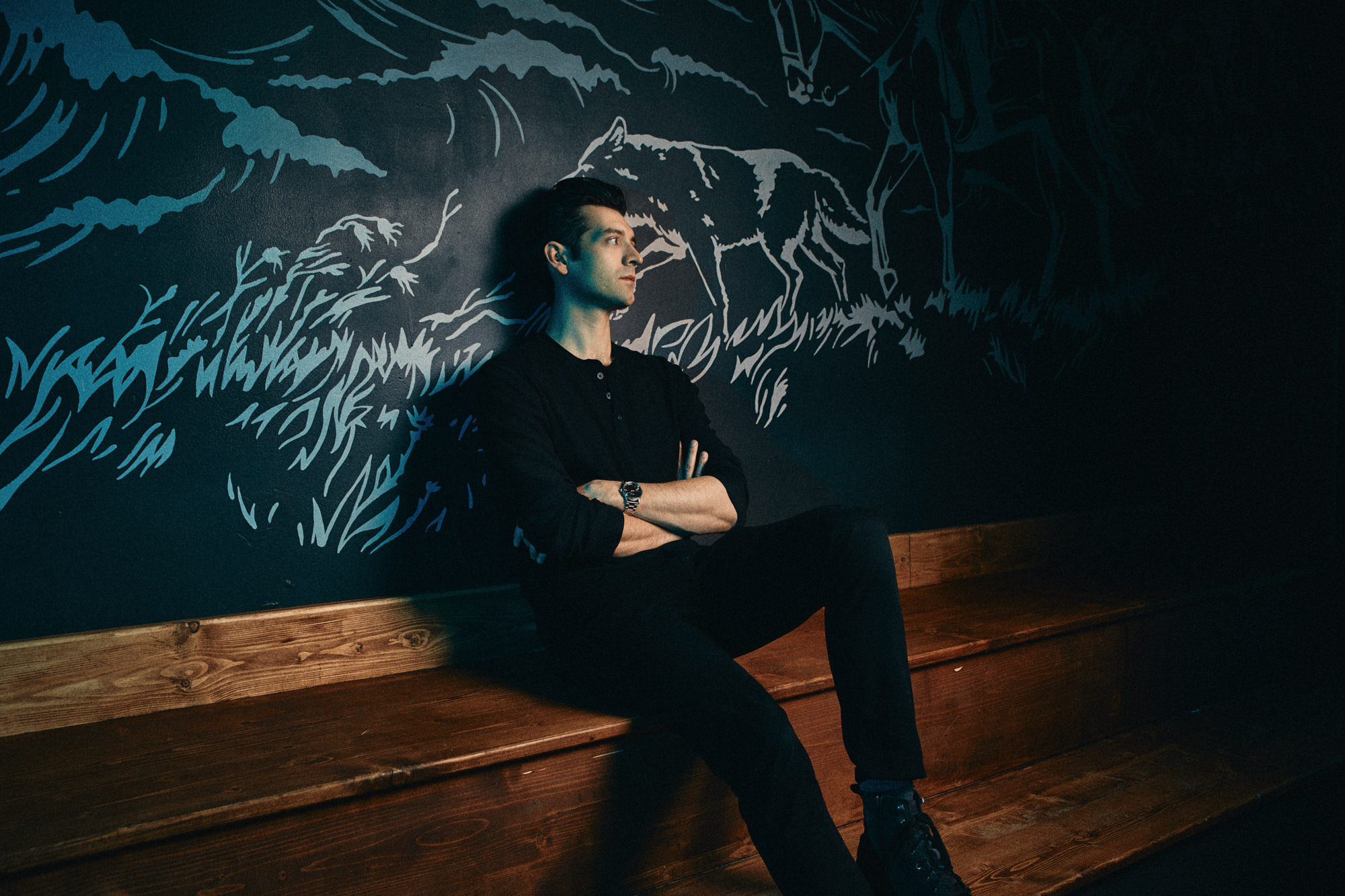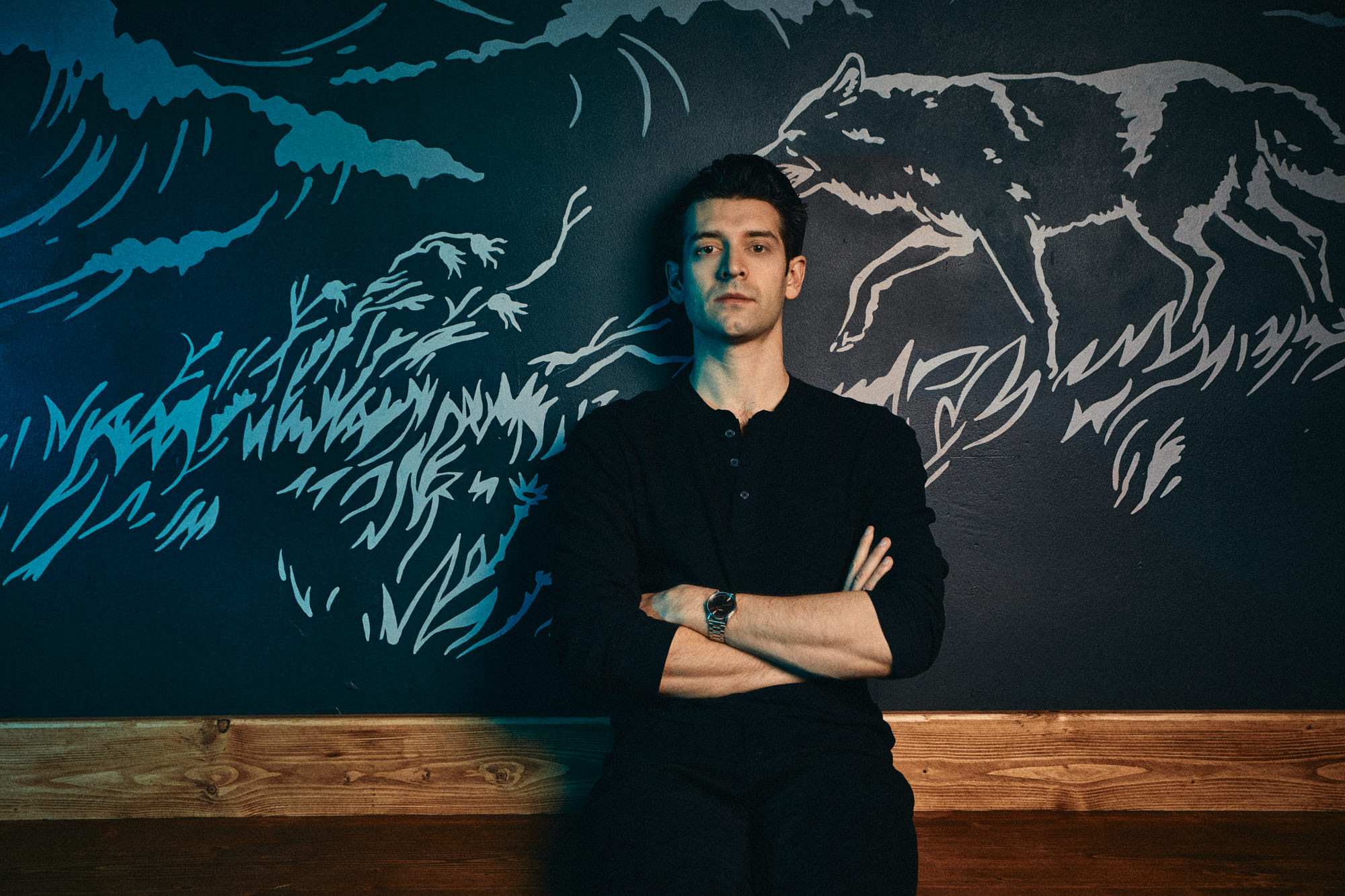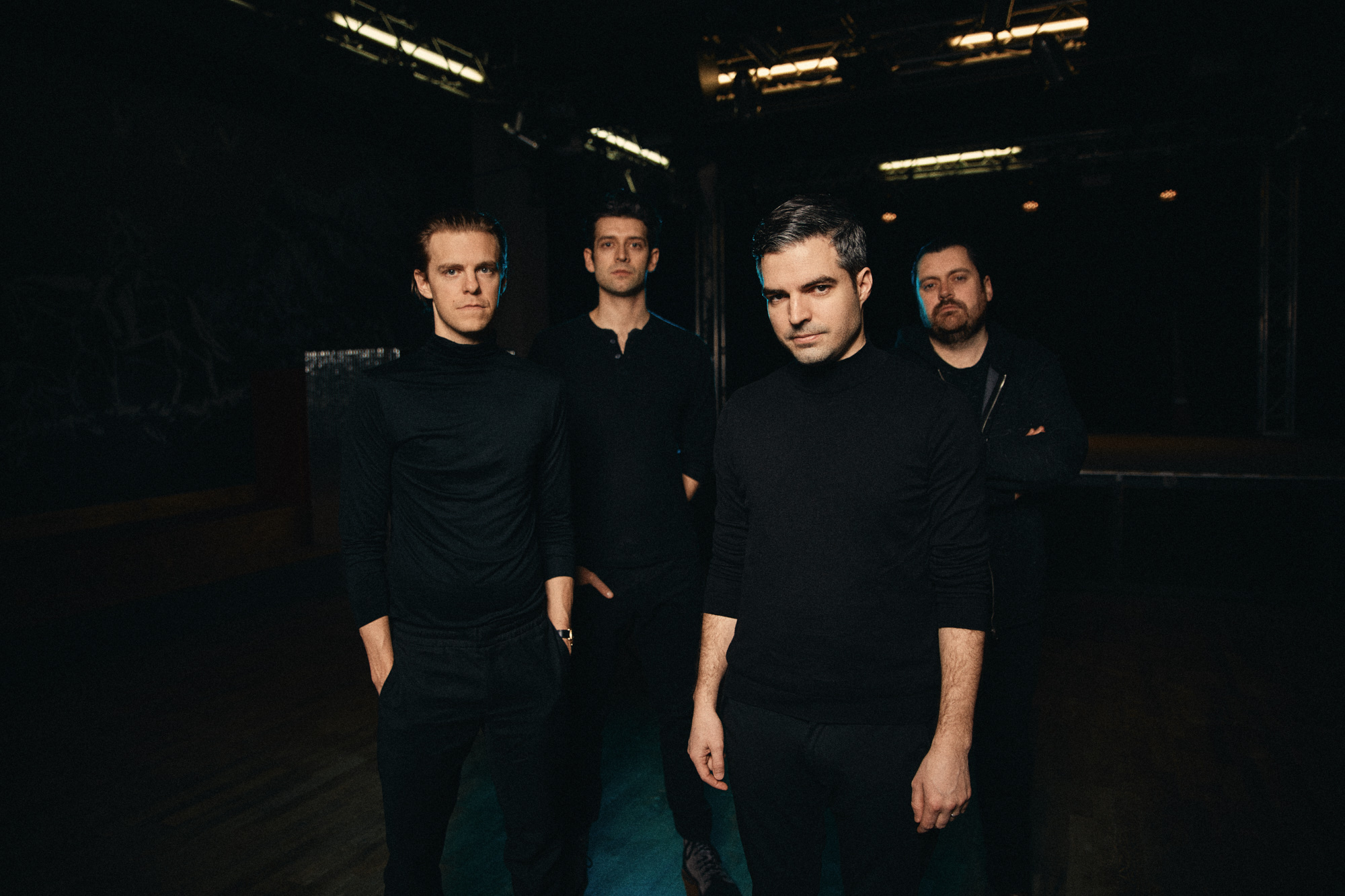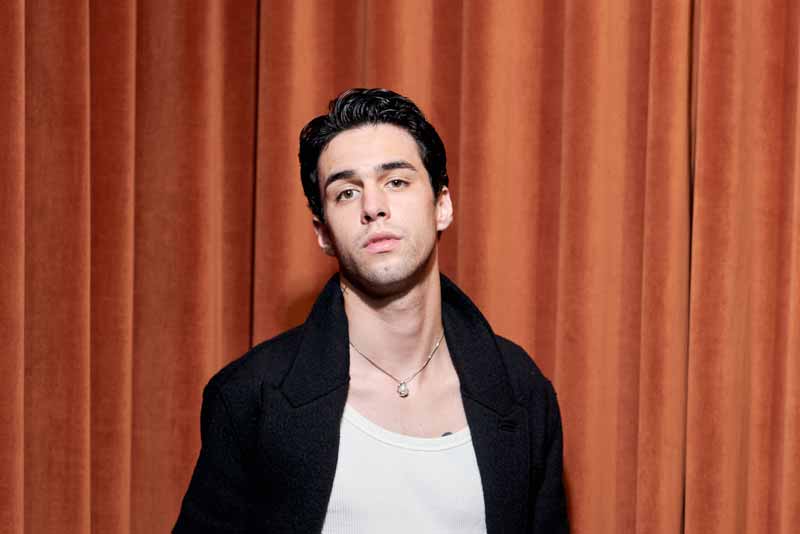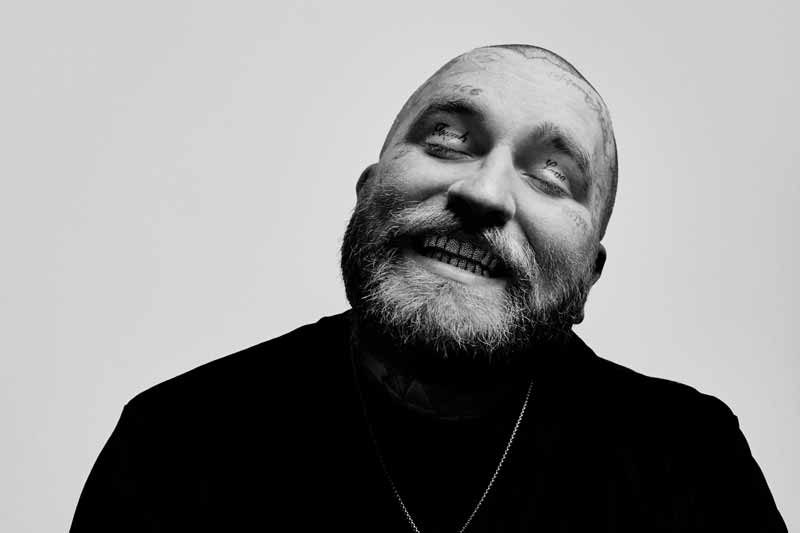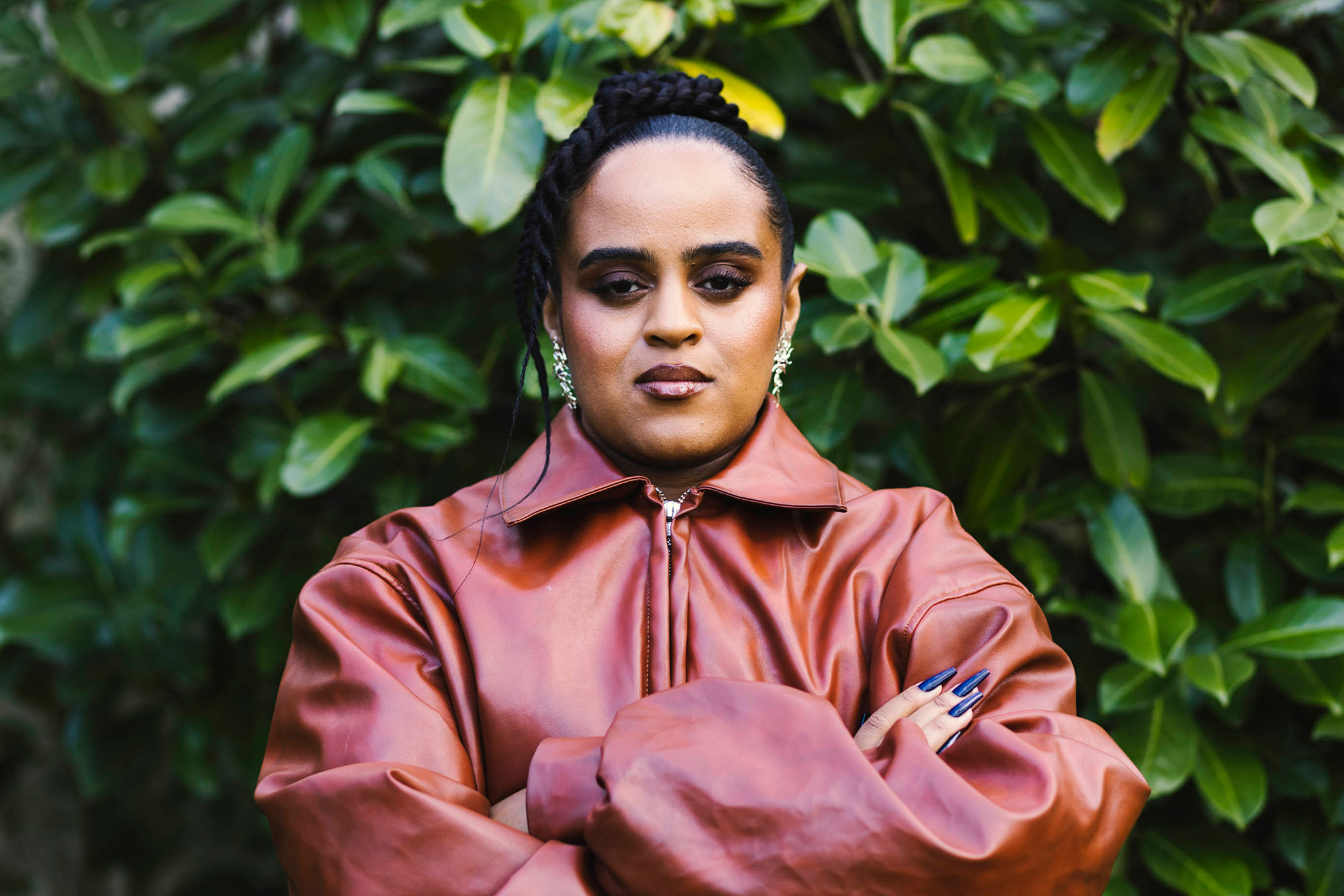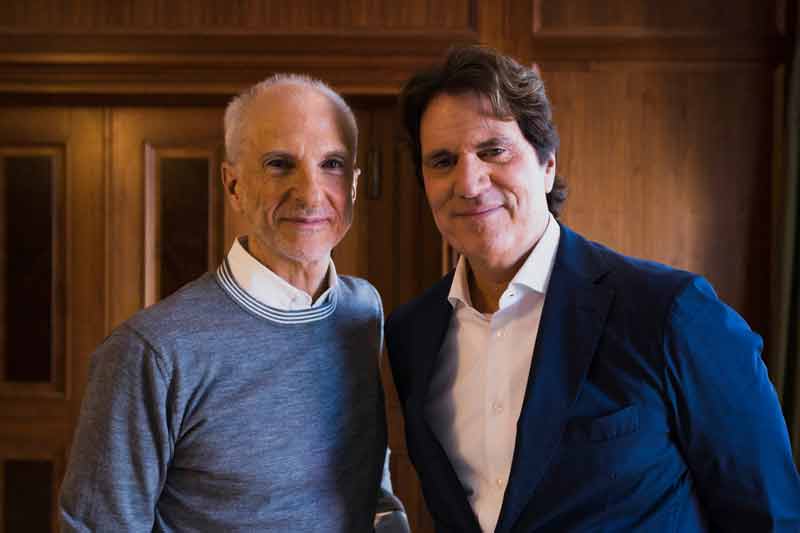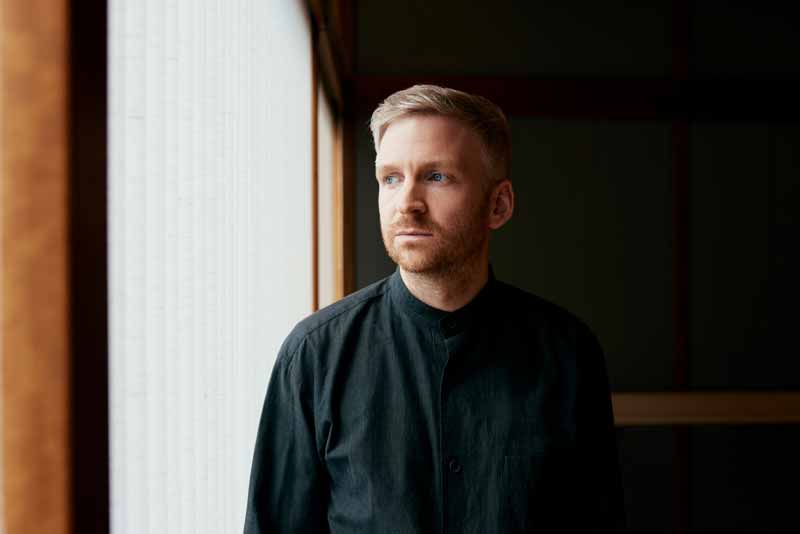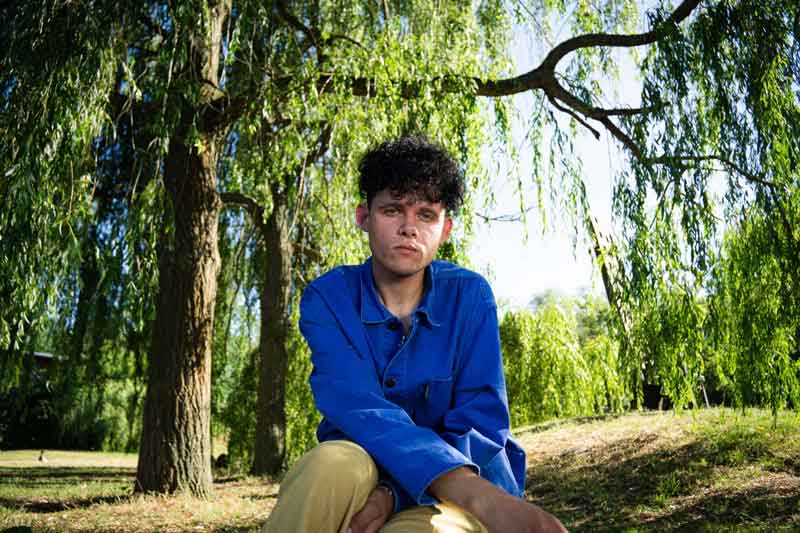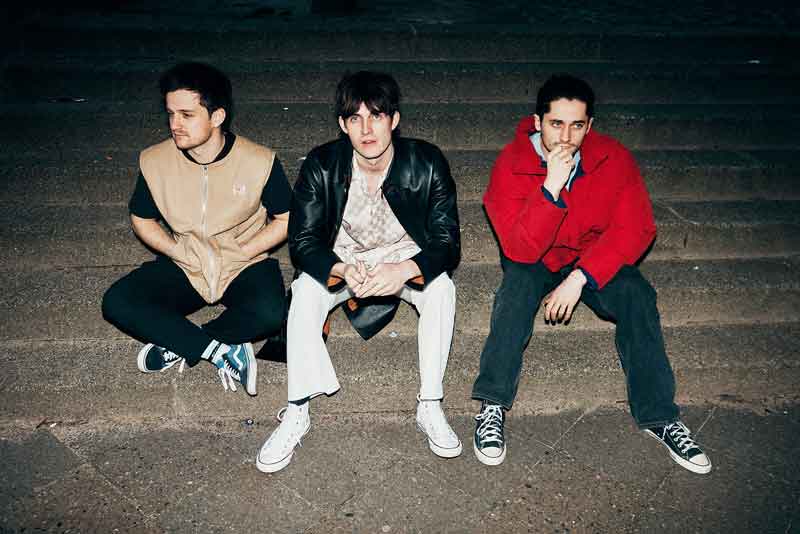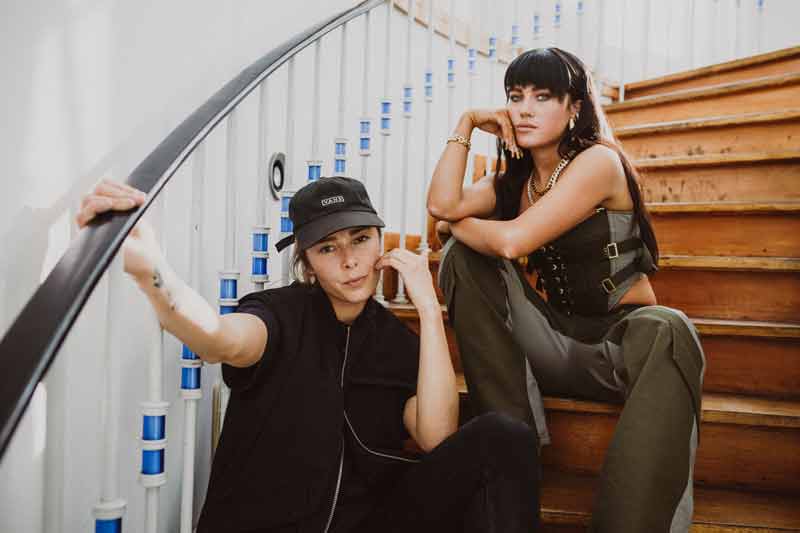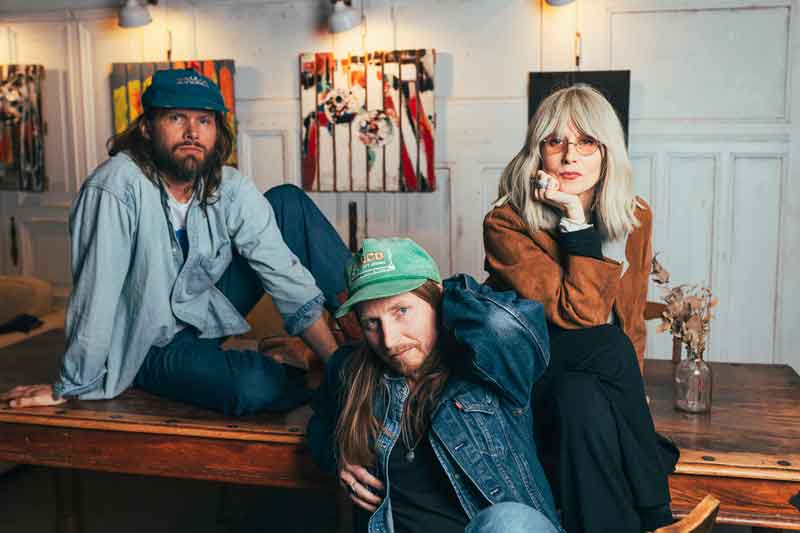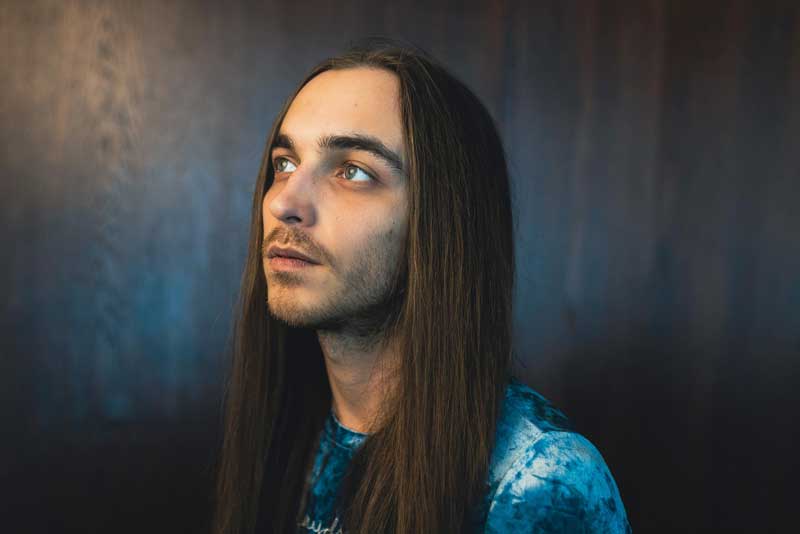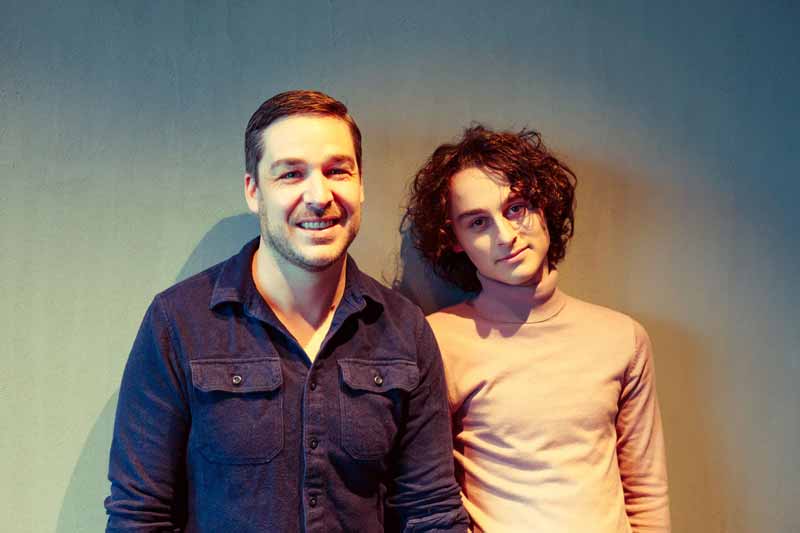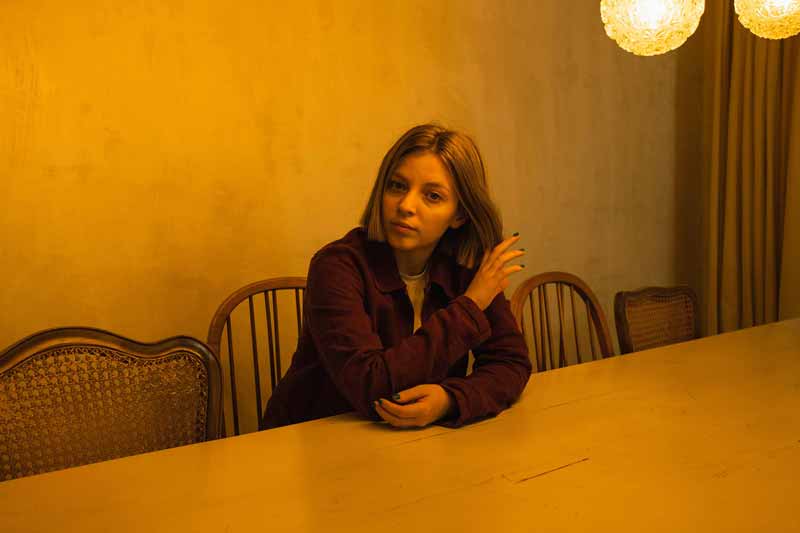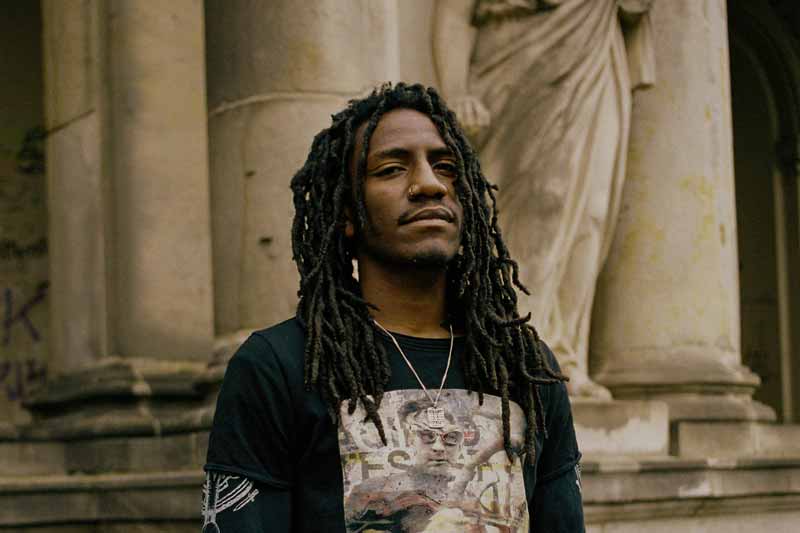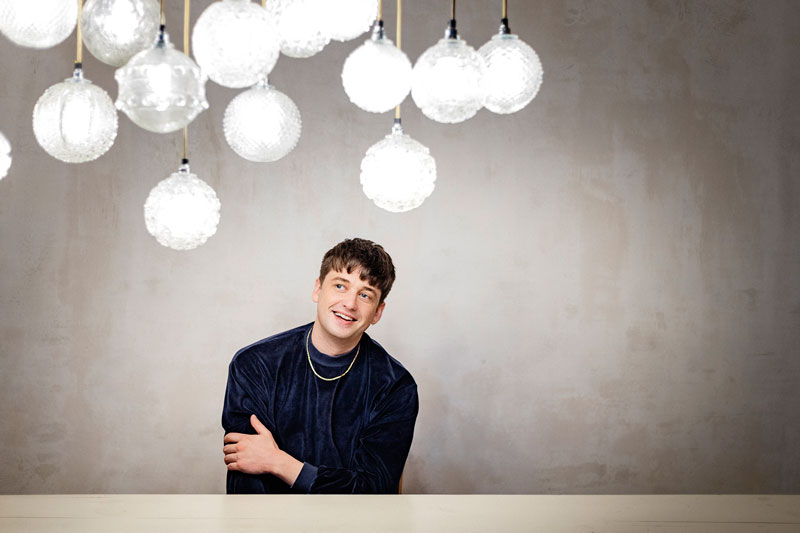Interview — The Boxer Rebellion
Of Melancholy And Confidence
With their new album “Ghost Alive”, The Boxer Rebellion just released their “most personal and human record to date”. In our interview with band members Nathan Nicholson and Andrew Smith, we found out why this record became so honest and intimate. And why melancholy isn’t something to be shied away from.
25. März 2018 — MYP N° 22 »Resistance« — Interview & Text: Jonas Meyer, Photography: Steven Lüdtke
A small graveyard near London. It is late fall and brown and yellow leaves cover the ground. A man slowly hunkers down in front of a tombstone. He holds a photo in his hand and gives it one last look before carefully placing it at the foot of the stone. The sound of an acoustic guitar sets in, followed by a strong yet soulful male voice: “Here I am / I lost you once / I won’t lose you again“.
The man is Nathan Nicholson, lead singer of the band The Boxer Rebellion. And the scene described above can be found in the official music video for “Here I Am” – one of eleven songs on the band’s new record “Ghost Alive”. The Boxer Rebellion has been making music together since 2001, but according to the group this album is the “most personal and human record to date, an album born of hope through heartache“.
In accordance with this, the video’s plot isn’t mere fiction but tragic reality. The photo, which Nathan places at the bottom of the tombstone, is a picture of him and his father who passed away a little over a year ago.
Nathan’s story is so personal, that one doesn’t quite know how to deal with this stranger’s openness and intimacy except for being touched by it. The clear and powerful sound draws you in. And this isn’t just the case with “Here I Am” The entire album is extremely inducing and evocative – or simply said: “Ghost Alive” is an extraordinary piece of music.
At the end of the text accompanying the new record, the group writes: “As The Boxer Rebellion know more than anyone, nothing that’s really worth loving can truly die. Every effort must be made to make it count, doing all that you can to savour the many shades of light and dark. Nothing is black and white. There’s far more to life than mere survival.“ Maybe herein lies the secret behind The Boxer Rebellion’s 17 years of making fantastic music. We met them for an interview in Berlin.
Jonas:
Three weeks ago, you released the music video for your new song “Here I Am” which is very personal and deals with Nathan’s loss of his father. How did you find the courage to share such intimate and personal thoughts with us, the audience—people you don’t know and who you’ve never met in your life?
Nathan:
We actually wrote that song for a movie which didn’t end up working out. After that, I changed the lyrics and made them more my own. Right before we went into the studio to record the song, my father then passed away. I wouldn’t say I was in a dark place, I was just in this place that you’re in after losing someone—there was this cloud above us whilst recording. Finally, we shot the video with our good friend Ry Cox. Ry has toured with us and has really gotten to know what we’re after and what we’re all about. It was his 4th video for us and it was nice to be able to do something quite personal. We’d never done a London centric video even though that’s where we’re based. We’re a London band. It was nice for me also to watch it after. We put a photo of my dad and me in there.
Jonas:
Watching this video and listening to the music is like sitting in a room with someone telling you they just lost someone — you can’t hide, you don’t know what to do, you don’t know how to react.
Nathan:
Yeah, watching it for the first time was weird for me, too. Obviously, I was there, we all were there whilst filming the video, but it was an emotional moment seeing it.
»Working with CALM was a chance for us to do something different that has more impact than just releasing a song.«
Jonas:
“Love Yourself” is another song on your new record that demonstrates a similar degree of intimacy. With this song, you’re supporting the mental health charity CALM what stands for “Campaign against living miserably”. What is the idea behind that?
Nathan:
We’re just highlighting the issues of male suicide and the problems of mental health and how these issues are viewed by everyone. I mean I know there’s a lot more discussion about it now which is really good. Working with CALM was a chance for us to do something different that has more impact than just releasing a song: To see how we and our songs could potentially help.
Andrew:
I’m really happy with how these two songs and the CALM campaign have been received. It feels very genuine and very sincere. So much of the time with Social Media, TV and everything, you’ve got these trends where certain emotions and topics are marketed and capitalized on—and are really abused and exaggerated. CALM brought together all these musicians and like I said, it feels very genuine. It seems like it’s coming from a true place. Everyone involved seemed willing to be on board because it was something they truly seemed touched by.
Jonas:
One of our photo artists told me that your first record “Exits” helped him through a very tough time. I think the ‘helpful’ element is still a central part of your music. For example, in “Don’t Ever Stop”, there’s this trumpet part that feels like someone is holding you and giving you solace and hope. Is giving hope one of the reasons why you make music?
Nathan:
I wouldn’t say so, I don’t ever really think about it like that. I kind of just make music that makes me feel something. It’s funny because I remember when we were doing interviews for our last album. I was thinking this is a really happy record because it’s very colorful, it has a colorful cover, a colorful kind of vibrate sound, we recorded it in the “LA sunshine” etc. Well, that’s what we thought. And then we heard other people say: “Oh, this is really dark and depressing!”
Andrew:
And we were just trying to have fun.
Nathan:
So, we don’t set out to this or that specific thing, we just want to do something that sounds nice and comforting—something that just sonically has to sound good.
Jonas:
You just told us that you had already written all of the songs before your father passed away. Did this tragic event have an impact on your sound, on your music?
Nathan:
I don’t know if it did necessarily. Andy did a lot of the arrangements and I don’t actually play an instrument on that record, I just sing. So, for my side, just the singing side, it’s easier, to a degree, to sing something if you feel it. And so that’s kind of where I was coming from. I could feel everything. Between demoing a song and recording it, months or even years pass. You’re out of the headspace you were in back then, and I think that was the case for me. I was in a completely different place and it was almost like a completely different take on the song.
Andrew:
Yeah, I guess also the textures and the timbres play a huge part of creating certain moods in songs and even a single phrase like “Love Yourself” or “Here I Am!”, or whatever, can be interpreted in so many different ways if you hear certain instruments accompanied with it. You’re encouraged to come in from a different angle.
If you have drum machines or electronic stuff and the tempo is different, it will probably take on a different meaning. There are lots of different ways in which you can produce a song as a band, to suit different kinds of sentiment. We found that using those instruments, acoustic stuff, strings, horns—there’s a lot of harp on the album as well—, that that got something so natural to resonate. Even though the songs were already recorded, there was this certain kind of mood was set upon especially Nathan but really all of us which influenced our sound. Maybe we were encouraged to follow our mood down that route and the album reflects that.
»I’m a little bit sick of things being too dehumanized and a little bit too electronic.«
Jonas:
A couple of months ago, we met Awolnation’s Aaron Bruno for an interview. He said that he didn’t want to have any “fake shit” on his new record like auto-tuned voices, for example. He said that today, people are looking for something else. What is it in your opinion that people really want musically?
Andrew:
I don’t know. I mean certain sounds just really affect people. Like there’s a certain time of night, if I’m in a busy place like a club, and I hear a certain synth sound, it really gets me emotionally. And a couple of acoustic guitar strings ringing out is another thing that does it for me. So, I don’t know. I guess it would depend on whatever sounds you’ve heard throughout your life. And then hearing them in a certain context can really hit you hard. I’m a little bit sick of things being too dehumanized and a little bit too electronic. I think a balance of that kind of stuff is great. But I do prefer something where you can actually hear the person playing it and you can hear little mistakes and things like that. I think that resonates with me.
»I felt like being in the band could and should not be taken for granted.«
Jonas:
You guys founded your band in 2001, so you’ve been making music together for 17 years now. Is continuity a form of resistance—or “rebellion”—in these unstable times we’re facing today?
Nathan:
I guess you could view it as continuous… Andy actually joined the band later, four years ago—but that also feels like a long time now. So yes, everything with the band feels pretty stable. But when you’re in it, I don’t really think of it in that way. You’re kind of always onto the next thing. So, like for instance with this new record, when you see it in its packaging, it’s done. You’re like ok, we’re down with that one. Even we’ll be touring it, and we’ll be touring it for a while, but in my mind, I kind of start thinking about what’s next.
Andrew:
And we’ve had other factors like outside of the music. For example, after our US tour that ended one and a half years ago, we didn’t really know what the next step would be for us. For me, and I’m just speaking for myself, I felt like being in the band could and should not be taken for granted. I felt grateful and maybe that makes it even more satisfying. I mean like musically it has been very continuous. You never worry that the music will dry up or something like that, but all the other factors surrounding the music those are the dangerous ones.
Jonas:
In your official press kit, your band member Adam Harrison said: “I don’t think melancholy is something to be shied away from.” Would you say allowing melancholy to enter into your life makes you happier in the long run?
Nathan:
I believe so. I think it’s good to accept different emotions and to accept that you can’t always be on top form. It’s just taking the good with the bad and being able to do that. And knowing that it will get better, even though it may get shit, but yeah, eventually it will get better. So, I think it’s good to have a bit of melancholy in your life.
Andrew:
Melancholy is such a universal thing. It’s hard to speak to hundreds or thousands of people in a melancholic way. That just doesn’t really happen. But to play music to people that is a bit melancholic, that’s a much more accepted thing. And it’s a way to connect with people a lot quicker than if you just started talking about the reasons why you feel sad.
Nathan:
Yeah, imagine going to a concert and it’s just a chat about how you’ve felt really shitty. Everyone would be like: “Oh, god…” Put a beat to it and it’s fine.
»Melancholy is a big part of what people want to express.«
Jonas:
Adam also says: “We need to recognise the legitimacy of sadness.” Is the legitimacy of sadness the base of the legitimacy of making music?
Andrew:
I don’t think it’s the base of making music necessarily. I think music is an expression of all kinds of emotions. It’s a way of reaching people even those far away from you. And this happens time and time again, it’s almost like listening to the same story over and over again. When I listen to my favourite songs, they touch me in a different way every single time. And I’m grateful to the songwriters who wrote those songs because they really helped me through hard times. Expression is at the root of music and melancholy is a big part of what people want to express.
Jonas:
Are there any bands that give you the same amount of solace and hope that other people find in your music?
Nathan:
U2 always makes me cry—when I’m drunk (laughs).
Andrew:
I think the biggest initial reaction I’ve had to a songwriter or an album is when I heard Bon Iver’s first record “For Emma, Forever Ago”. It doesn’t snow that much in Bedford where I’m from, but I remember a friend of mine just put that on in my car and it was a really unique experience. And even then, come to think it, I must of have been around 18, it was a very precious thing to hear. This is only 12 years ago, but I feel like back then, I wasn’t blasted with music everywhere I went. I didn’t have Spotify, I didn’t have music on my phone, music was a little bit more precious then. I couldn’t just search for it—I just had this album on CD in my car, driving around through the snow listening to it. I will probably never get that feeling again. It was pretty immersive—and that will stay with me.
More about The Boxer Rebellion:
theboxerrebellion.com
facebook.com/theboxerrebellion
instagram.com/theboxerrebellion
Photography by Steven Lüdtke:
